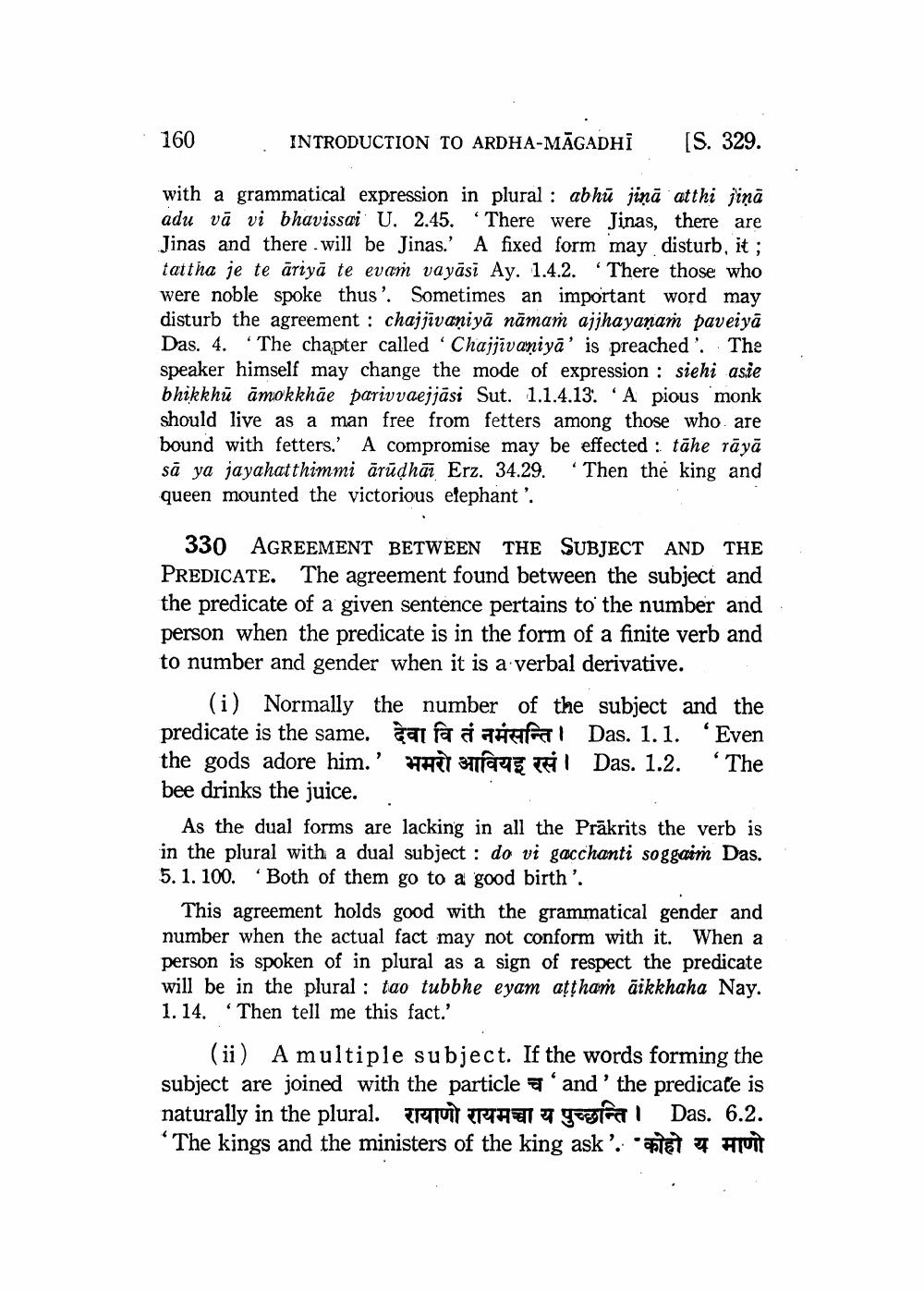________________
160
INTRODUCTION TO ARDHA-MĀGADHI
(S. 329.
with a grammatical expression in plural : abhū jiņā atthi jiņā adu vā vi bhavissai U. 2.45. "There were Jinas, there are Jinas and there will be Jinas.' A fixed form may disturb, it; tattha je te āriyā te evam vayāsi Ay. 1.4.2. There those who were noble spoke thus'. Sometimes an important word may disturb the agreement : chajjīvaniyā nāmam ajjhayaņam paveiya Das. 4. The chapter called 'Chajjīvaniya' is preached'. The speaker himself may change the mode of expression : siehi asie bhikkhū āmokkhāe parivvaejjäsi Sut. 1.1.4.13. "A pious monk should live as a man free from fetters among those who are bound with fetters. A compromise may be effected : tāhe Tāyā sā ya jayahatthimmi ārūdhāi Erz. 34.29. Then the king and queen mounted the victorious elephant'.
330 AGREEMENT BETWEEN THE SUBJECT AND THE PREDICATE. The agreement found between the subject and the predicate of a given sentence pertains to the number and person when the predicate is in the form of a finite verb and to number and gender when it is a verbal derivative.
(i) Normally the number of the subject and the predicate is the same. alfa a afera I Das. 1.1. 'Even the gods adore him.' HARI
S E TI Das. 1.2. "The bee drinks the juice.
As the dual forms are lacking in all the Prākrits the verb is in the plural with a dual subject : do vi gacchanti soggair Das. 5.1. 100. Both of them go to a good birth'.
This agreement holds good with the grammatical gender and number when the actual fact may not conform with it. When a person is spoken of in plural as a sign of respect the predicate will be in the plural : tao tubbhe eyam aţtham äikkhaha Nay. 1.14. Then tell me this fact.'
(ii) A multiple subject. If the words forming the subject are joined with the particle q' and 'the predicate is naturally in the plural. Tru PAI 7 geraal Das. 6.2. * The kings and the ministers of the king ask'. Et q huit




